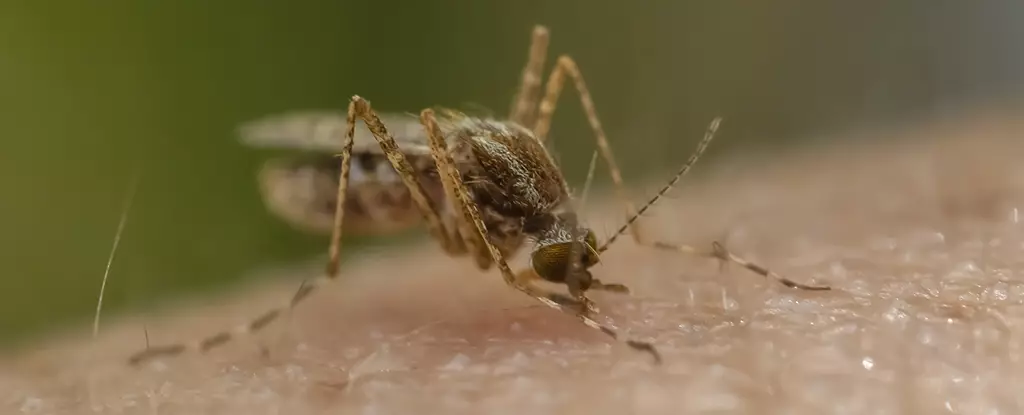Malaria remains one of the deadliest diseases across the globe, with millions affected yearly. Traditionally, mosquitoes have been known as vectors for the disease rather than its solution. However, ground-breaking research from scientists in the Netherlands poses a radical shift in this understanding by utilizing mosquitoes as a means of administering a new vaccine that shows remarkable efficacy against malaria. This emerging research highlights a promising bridge from vector to protector, signaling hope in the ongoing battle against malaria.
The new vaccine, developed by teams at Leiden University and Radboud University, represents a significant advancement in vaccine technology. Unlike conventional vaccines that may utilize inactive parts of the pathogen or harmless relatives, this prototype vaccine uses a genetically modified form of the Plasmodium falciparum parasite—the very organism that causes malaria. Named GA2, this version is engineered to be weakened in such a way that it cannot establish a disease in an individual. It triggers an immune response without the dire consequences of full-blown malaria.
“By utilizing this genetically modified parasite,” explains vaccinologist Meta Roestenberg, “we can mimic the natural infection process while keeping the individual safe from the disease.” The technique of delivering the vaccine via mosquito bites is particularly compelling. The mosquitoes behave as the natural vector, allowing for the parasite to interact similarly to how it would in an actual infection, fostering a legitimate response from the body’s immune system.
The study reports striking results: eight out of nine participants who received the GA2 vaccine remained free from malaria, in stark contrast to only one out of eight beneficiaries of the previous vaccine version, GA1. This leap in effectiveness underscores the importance of developing vaccines that not only elicit an immune response but also foster a comprehensive protective mechanism against the disease. Interestingly, the crux of the GA2’s effectiveness lies in its slower maturation process. The parasite takes nearly a week to develop in the liver instead of the swift 24-hour growth seen with GA1.
“This incremental development period appears to stimulate a more robust immune response,” the researchers noted, emphasizing that a well-prepared immune system translates to better overall protection. Dual mechanisms are brought into play, as GA2 prompts a more diverse immune cell response. This diversity serves to bolster the body’s defense against subsequent real infections, ensuring a lasting impact beyond mere temporary immunity.
While the vaccine shows immense potential, safety remains paramount. According to the study, side effects were generally mild and limited to localized reactions like redness and itchiness around the injection sites similar to traditional vaccinations. Post-study protocols ensured that all participants received anti-malarial drugs, indicating a safety net for any potential breakthrough infections.
Nevertheless, it is essential to view this research within the broader context of malaria as a global health crisis. Despite triumphs in vaccine innovation, over 250 million cases of malaria persist annually, resulting in a heart-wrenching loss of life. Current vaccinations boast protection levels between 50-77% and usually offer limited durations of immunity—often waning in effectiveness within a year.
The application of mosquitoes as a delivery device for the GA2 vaccine is a groundbreaking evolution in malaria prevention strategies. However, practical deployment remains a question. While the research illustrates successful trials in a controlled environment, the translation of this method for widespread public health application is yet to be determined.
As researchers continue to refine this innovative vaccine, the insights gleaned from the GA2 prototype will undeniably shape our understanding of effective malaria interventions. The dynamic nature of such research paves the way for not only better preventive measures against malaria but also establishes a framework for a new model in vaccine delivery systems. By rethinking our strategies and exploring unconventional methods, the fight against malaria takes one step closer to an era where the disease may become a footnote in history.


Leave a Reply